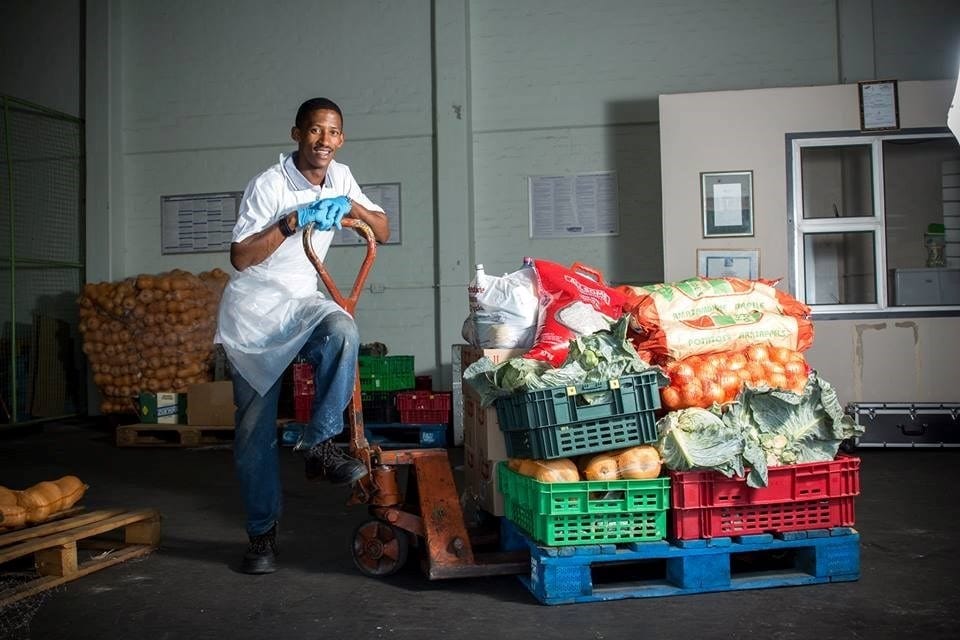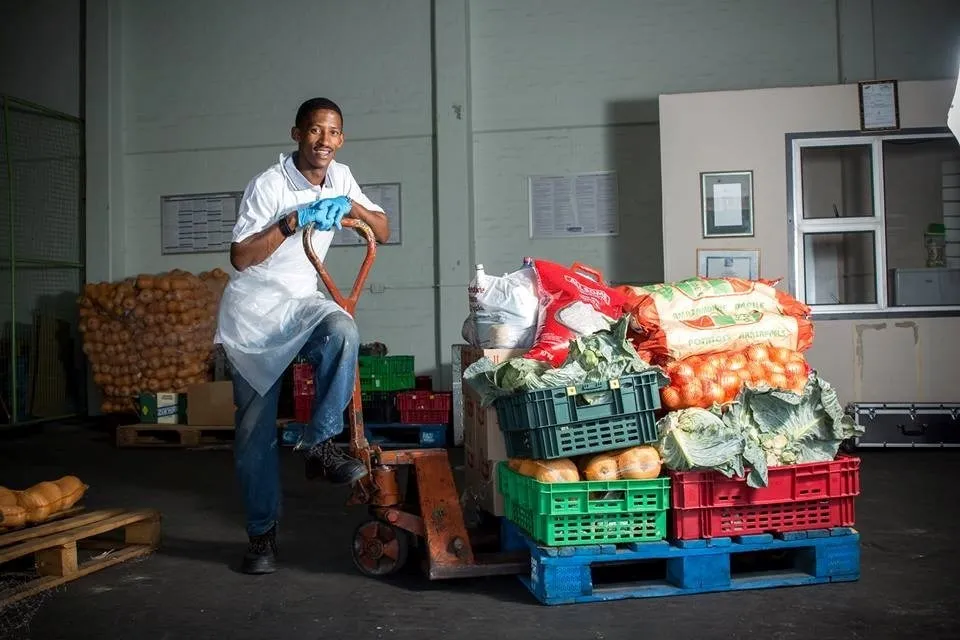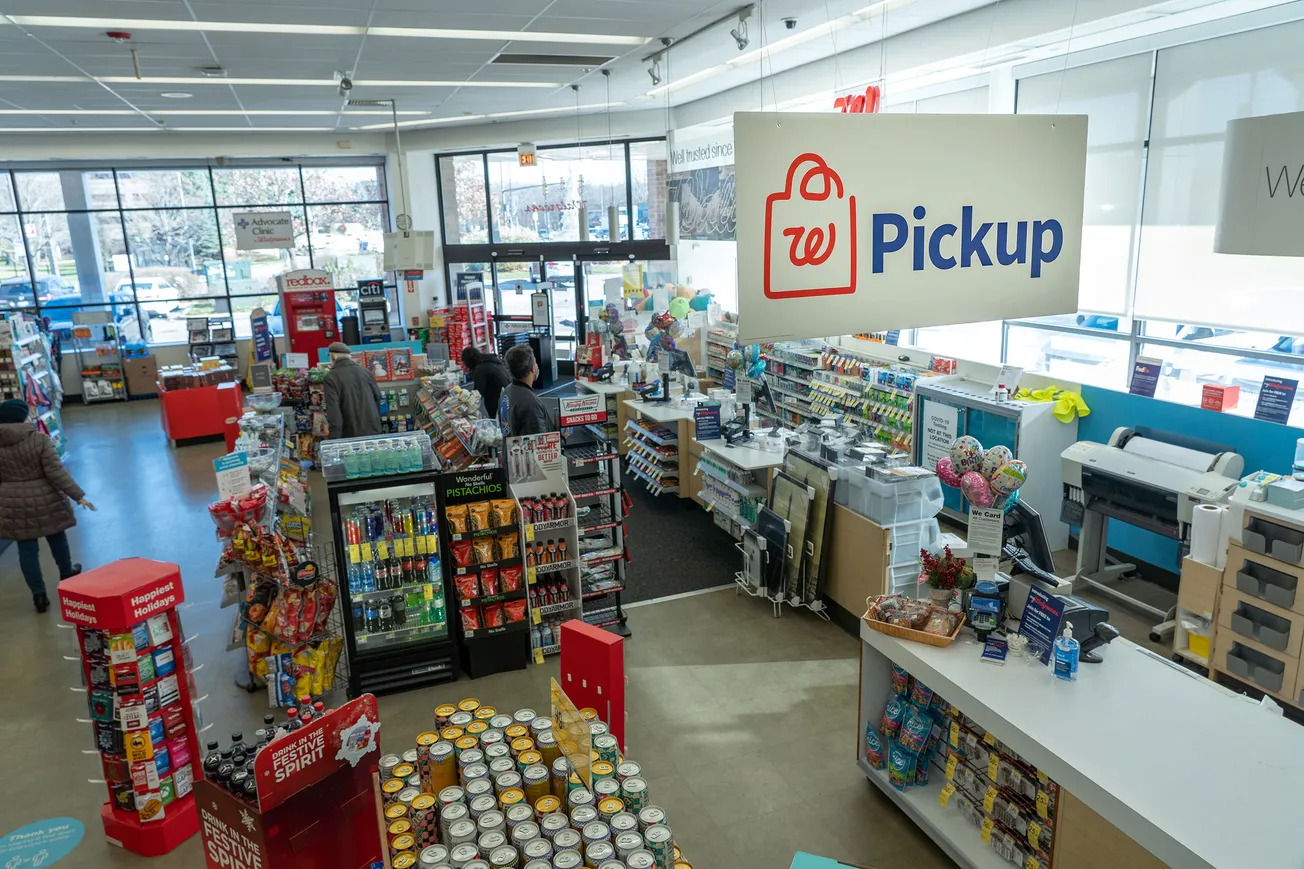PURCHASE, N.Y. — PepsiCo, one of the world’s leading food and beverage companies, and The Global FoodBanking Network (GFN), a nonprofit organization that develops and supports food banks in more than 30 countries, delivered more than 85 million servings of fresh food to communities in need in 2018 as part of their partnership to strengthen food banks around the world.

Rescued produce from farms in South Africa is ready for distribution by FoodForward South Africa, which serves more than 200,000 South Africans facing hunger annually. GFN and PepsiCo’s partnership helped FFSA deliver more than 2 million servings to those in need in 2018.
PepsiCo invested $500,000 with GFN to support training and development for food bank staff and purchases of essential equipment like trucks and refrigerated storage space – investments that help food banks enhance their operations and deliver fresh fruits, vegetables, whole foods and dairy to those suffering from hunger and malnutrition. This investment supports food banks in addressing logistical and financial challenges that often prevent food from reaching those in need and provided fresh servings to nearly 175,000 people in 2018 alone.
For the third consecutive year, there was a rise in the population suffering from hunger in 2018. According to the U.N., 1 in every 9 people experiences chronic hunger, which can have harmful impacts on children’s physical and cognitive development, women’s reproductive health and communities’ safety and economic vitality.
Food banks play an essential role in helping food reach the communities and populations who need it most. PepsiCo’s partnership with GFN helped relieve hunger and strengthen food banks in Colombia, the Dominican Republic, South Africa, Israel, Bulgaria, Australia, Argentina, Guatemala and Peru. GFN and PepsiCo identified these countries based on local nutrition need and the capacity of existing in-country programs to significantly expand their distribution of fresh food with additional financial support.
“Global hunger is both a problem of food production and logistics,” said Laxman Narasimhan, chief executive officer of PepsiCo Latin America, Europe Sub-Saharan Africa. “We’re proud to support grassroots, community-led interventions like food banks, whose food distribution efforts are critical in the fight against hunger. As violent conflicts, economic downturns and natural disasters put more families at risk, we must continue to invest in proven solutions, like food banks, so they have the resources and support they need.”
“While hunger is a solvable problem, one in four people in the world are malnourished. At the same time, one-third of all food produced for consumption is wasted. Food banks capture food poised to be wasted and redistribute it to those in need. Thanks to the generosity of PepsiCo, we have an incredible opportunity to broaden the impact food banks have on communities around the world,” said Lisa Moon, GFN president and Chief Executive Officer.
Making nutritious food more accessible is an integral component of PepsiCo’s business. As part of the company’s Performance with Purpose agenda, PepsiCo is transforming its nutrition portfolio to include healthier options and has committed to providing billions of servings of nutritious foods and beverages to underserved consumers and communities. In the U.S., Food for Good, the nutrition operation of the PepsiCo Foundation, leverages PepsiCo’s logistics expertise to help nonprofits distribute nutritious meals to low-income families across the country. The PepsiCo Foundation further establishes community partnerships to fight hunger around the world—including by investing more than $12 million with the World Food Programme to improve the availability of affordable nutrition for families and children globally.








